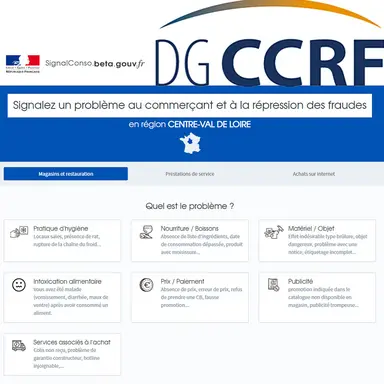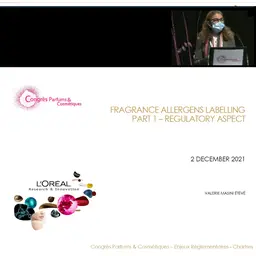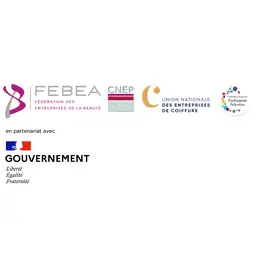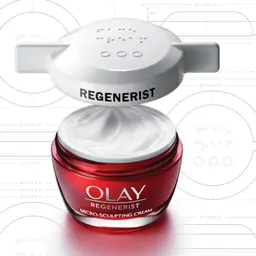
In mid-March 2019, the DGCCRF (Direction générale de la concurrence, de la consommation et de la répression des fraudes - French Directorate General for Competition, Consumer Affairs and Fraud Control) officially launched a new online platform, SignalConso, for consumers who wish to make a complaint against a professional. Insight from Sylvie Gallage-Alwis, of Signature Litigation: with this new platform, manufacturers and brands are even more under scrutiny.
The SignalConso online platform was launched discreetly in December 2018 for limited accessibility in the Centre-Val de Loire region. Three months later, there were reportedly more than 200 reports made by consumers in this region against professionals. This significant number is due in part to the way the site is designed. Indeed, the number of categories that can justify a claim is high, with descriptions that allow consumers to quickly understand the points they should be monitoring.
Thus, for the sale of products in stores or even services offered in a beauty salon or spa, the consumer is informed that he can make a claim relating to the following elements:
• Hygiene of the premises (dirty equipment, personnel without caps or gloves, personnel hygiene, presence of animals, temperature problems, etc.)
• Price problem (price not displayed, incorrect price, refusal of a payment method, price too expensive, false discounts, unjustified charges, etc.)
• Advertising problem (product not available, misleading claims, etc.)
• Service problem associated with the purchase (after-sales service problem, unkind staff, refusal to take back a product under warranty, etc.)
One can already question the relevance of a complaint about a too high price and an unkind staff, given the subjectivity of such categories, especially since if the consumer chooses this option, his name will not be disclosed by the DGCCRF to the professional, making the latter potentially unable to provide an adequate response.
There is also a whole page dedicated to online sales and, for each category mentioned above, the preliminary question of whether the purchase took place online is asked. One can then imagine that the list of examples of the type of dissatisfaction that a consumer could be offered will grow longer.
This comes at a time when the DGCCRF announced on 31 January 2019 that it would strengthen its cooperation with the CNIL (Commission Nationale de l’Informatique et Libertés) in order to “raise consumers’ awareness of the risks involved in communicating their personal data and disseminate the good practices implemented by professionals” as well as “carry out joint controls”.
While the existence of an effective claims process is essential, the usefulness of a new platform such as this one is questionable. Indeed, it exponentially increases the information available to the DGCCRF because it aims to ensure that the first step towards consumer dissatisfaction is taken through a system where it is informed at the same time as the professional.
This is how SignalConso describes itself in the following terms: “a service that allows both to understand one’s rights as a consumer and to be helped to ensure that they are respected.” This presentation seems to leave little alternative to the professional targeted, especially since the only option that seems to be offered to the said professional is to change. In the tab “How it works?” of the site, it is indicated that in case of anonymous reporting, “our team contacts the merchant to inform him of your report (anonymized). The trader, if he so wishes, may spontaneously make the necessary corrections without penalty”.
What if no correction is necessary and it is an inappropriate approach on the part of one or more consumers?
Experience to date has shown that the DGCCRF has only been called upon when the trader has not satisfactorily responded to the initial complaint of the consumer who decided to take up the case by bringing it before the DGCCRF. This gave the trader a real opportunity to settle things and find common ground with the consumer, without being on the authorities’ radar.
It will therefore be important to see how DGCCRF will use this information in a context where its powers have increased and where it is increasing its investigations against professionals, including when a product does not present a health or human health risk.
As such, SignalConso indicates that DGCCRF will only intervene if there are several similar claims. It remains to be defined what this really means and whether, as in the new system of group action, many simply mean two people.

|
Sylvie Gallage-Alwis Layer at the Court Signature Litigation AARPI |













